World Cup 2022: Tim Cahill gives his explanation on why Australia has failed to qualify automatically
As pressure mounts on Graham Arnold, one of the greatest Socceroos ever says the failure to qualify automatically for the World Cup shows how much Australia misses Ange Postecoglou.
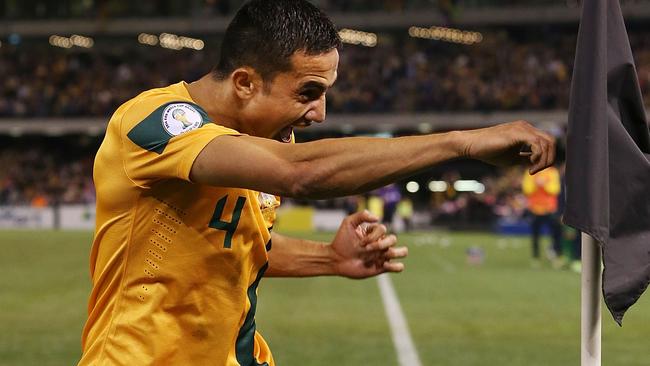
Football
Don't miss out on the headlines from Football. Followed categories will be added to My News.
Socceroos legend Tim Cahill says Australia’s World Cup poor group campaign is a product of the broken pathways system.
The Socceroos are on the verge of missing the World Cup for the first time since 2002
and will head into June’s playoffs on the back of a 1-0 loss to Saudi Arabia in Jeddah on Wednesday.
Cahill played in the four World Cups after that, and believes there are no quick fixes.
“I think we can’t be short sighted,” Cahill said.
“I qualified for four World Cups. Right now within the squad we do not have the experience, we do not have the players playing in the biggest leagues in the world any more, we do not have the players playing in the Premier League.
Watch the world’s best footballers every week with beIN SPORTS on Kayo. LIVE coverage from LaLiga, Bundesliga, Ligue 1, Serie A, Carabao Cup, EFL & SPFL. New to Kayo? Try 14-Days Free Now >
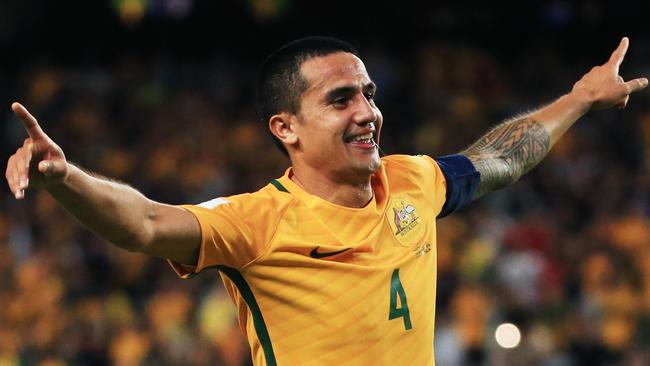
“The choices that players are making now to play in countries where it is financially better is affecting the pathway but also the pathway for Australian football for footballers is not very good and it is proving right now with the output.”
Coach Graham Arnold may not lead the side again after just winning just one of their past seven matches.
The Socceroos now face the United Arab Emirates in a sudden-death playoff on June 7 in Doha.
The winner of that match will progress to another do-or-die playoff against Peru for a spot in the World Cup.
Cahill said Australia missed Ange Postecoglou’s methodology.
“The solution is to go into detail and put people that understand the game better in the areas they need to be in because when you had Ange Postecoglou there and his set up, you saw a change in the game, in the style of play, a methodology, a philosophy the fans were familiar with, whether they were happy or sad,” Cahill said.
“He is one of the biggest Australian managers ever.
“So how do I feel about it? I want to qualify. With this squad, it is going to be difficult but I am fully behind Australia.”
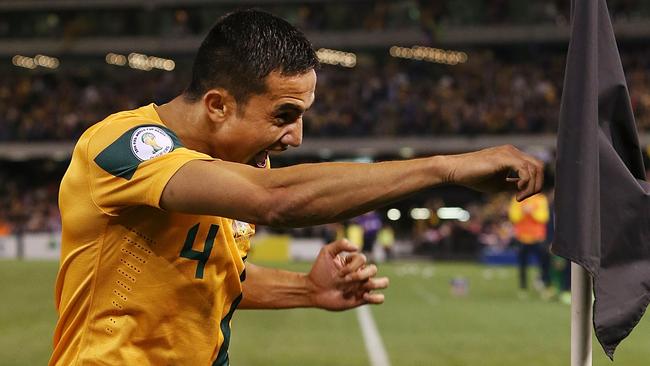
I WANT TO OWN A CLUB: CAHILL’S HUGE FOOTBALL AMBITIONS
Tim Cahill has big plans.
Three years after officially retiring from the game, the Socceroos legend is helping lead host nation Qatar into the 2022 World Cup and is looking to one day own a club himself.
“My glass was full, there was probably not much more football I could play. There are not many countries I haven’t touched when it comes to football,” Cahill told The Daily Telegraph. “I thought to myself, why not reach for the stars like I did on the pitch.
“I’d covered five countries in the world, finishing in India, but many years before I had planned my future … constantly learning and evolving, but also at the same time preparing for life after football.
“I started with nothing and I know how difficult it was for my parents to get that loan to get me overseas so my appetite for my second life off the pitch is as great as when it was on the pitch. People look at life and the metric of success as winning but I won because I gave everything and I played on the biggest stage on earth.”
Cahill sat down with the Telegraph at the Aspire Academy in Doha, the world class sport institution he runs as chief sports officer.
His large office is immaculately tidy with crisp white walls and floor. A large desk sits on one side of the room, a designer sofa on the other.
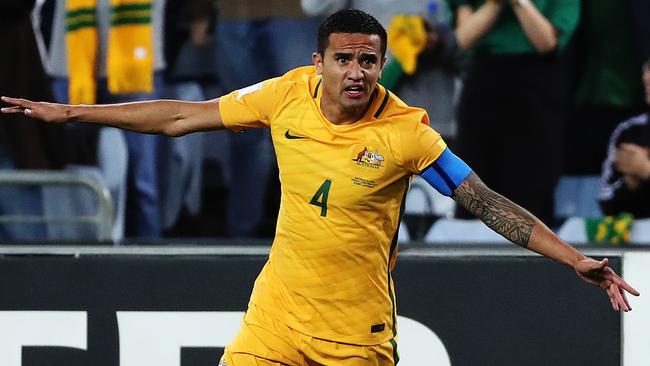
MY OWNERSHIP DREAM
The 42-year-old could be mistaken for sounding cocky. He isn’t. Cahill is simply sure of himself and knows his value.
Since retiring he has taken the “blockbuster course” Business of Entertainment, Media and Sports (BEMS) at Harvard Business School, where his peers in the class of 80 include singer Ciara, American NBA player Julius Randle and reality TV reno couple Chip and Joanna Gaines.
He has also completed his UEFA Pro Licence, as well as his UEFA A, B and C licences.
“I got pretty excited by education,” Cahill said. “I left school at 16, I went back to school at 39. Taking a back seat has pretty much been where I see myself but taking that back seat is going to escalate me to somewhere that is going to be I think in the future a top leader in football and especially here in Qatar.
“When I got closer to having opportunities to coach and manage, I started to see the world. I said to myself, ‘Okay, let’s put the handbrake up, let’s not accept being a manager. Why can’t I oversee a big institution? Why can’t I be a CEO? Why can’t I be director of football? Why can’t I own a football club?”
Cahill applies the same discipline to business that he did to football and counts the likes of News Corp chief executive Robert Thomson, French legend Thierry Henry and Spanish manager Mikel Arteta as mentors.
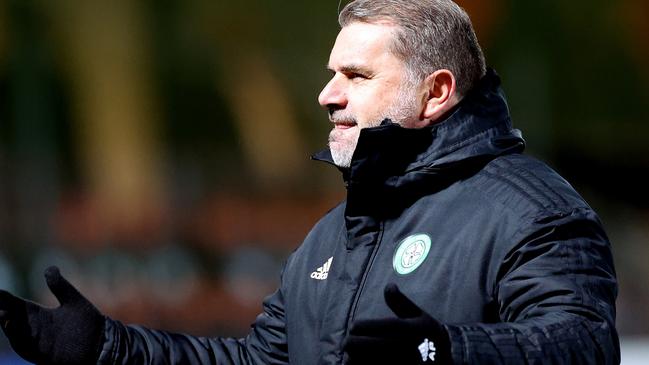
NO LONGER A ROBOT
While many stars struggle to transition to normal life after their careers end, Cahill has flourished.
“It is not tough because I pre-planned, I knew my direction and I was lucky enough that Qatar took me under their wing,” Cahill said.
“When you are in the game, the game owns you. I was a robot. When you retire, you need to get your teeth into something that is proactive, something that you can really enjoy. I am basically someone that didn’t need football when I retired, my glass was full. There are footballers, or whatever sports people that still need to feel important and to feel connected to something.”
Wife Rebekah and children Kyah, Shae, Sienna and Cruz keep Cahill grounded.
“I know my why,” Cahill said. “My why is my family, my parents, my kids. So what I am very conscious of is making the most of my time.
“When I was doing however many hours a day as a footballer, I am doing the same amount of hours in the office. It is a pleasure to come to work.
“I get to work on big projects. I get to help change the footprint of football in this country and also to challenge myself because this is a big responsibility. It is not just football, it is sport, overseeing fencing, table tennis. I am not one dimensional. I am someone that tries to improve in all aspects.”
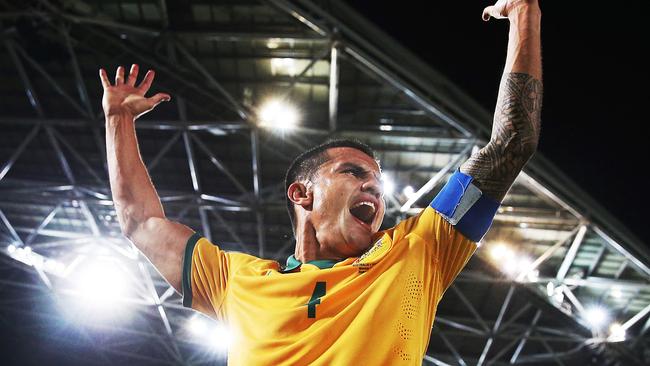
THE QATAR ‘MIRACLE’
Taking up most of Cahill’s time today is preparing for the World Cup in November.
The draw will take place in Doha on Friday, with the tournament to begin on November 21.
Cahill is one of four global ambassadors for the World Cup, alongside Brazilian champion Cafu, Cameroon’s Samuel Eto’o and Spaniard Xavi Hernandez.
Former England Captain David Beckham is the face of the World Cup.
“Living in a country like Qatar, you can see the future,” he said. “In 2010, I was in the room when the room Qatar got handed the World Cup. They said then there will be airconditioned stadiums and let’s be honest, 12 years ago to think there would be airconditioned stadiums and now sitting in the cold in the desert is pretty miraculous and incredible.”
Cahill’s love of the game hasn’t dissipated and he still plays regularly. His thrill though comes from action behind the scenes.
“It is a bit different but where I was addicted to football, I am addicted to business and lifestyle so I like a nice life,” he said. “Completing a degree, investing in something gives me that thrill.”
His latest business venture is electric car company BYD — Build Your Dreams — after the Australian distributor contacted Cahill to front the brand. Instead, on doing his research, he became involved in the back end and is now an investor, with the vehicles to roll out in Australia over the coming months.
“I flipped it on its head,” he said. “Electric is the future. I’ve seen it everywhere and you go to Australia and they are still fitting in the chargers. And you see what is happening now with petrol prices.
“I am not investing just in the cars, I am investing in the battery technology; that is the key.”
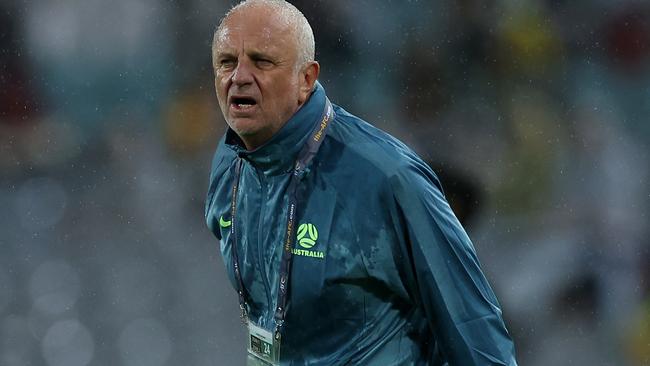
WE’RE FOR THE WEST
While Cahill has earnt millions in sport and business, he hasn’t forgotten where he came from. He and his wife grew up in suburban Sydney.
An important point of difference for BYD is its affordability compared to other electric options in the market.
“I told them if my cousins can’t afford to buy this car, I can’t be associated with it,” he explained. “I said, all of my family is out west (of Sydney).”
His other businesses include Vitaman, Dynamic Tape, Cruzaa, GameOn and E-Mersion and he has a series of 14 children’s books called Tiny Timmy. He is also an ambassador for Weet-Bix, a brand he has worked with for nearly 15 years, ACY Securities and Greyhounds as Pets NSW.
“It is not about money. If you are good at what you do, you will get paid forever,” he said. “My work ethic is what defines me. I invest in people. I invest in the future and the money that I do invest in, I don’t chase stupid numbers, what I chase is the excitement that I felt when I score a goal.
“What I invest my money into is lifestyle, so first home and where we live, everyday things. I like peace and quiet, I like home. And for my kids, what I want them to do is be proactive in finding something that they love and for us to do it together.”
There is also the business of football.
“On top of all of that, maybe an (club) owner,” he said. “What you have to look at now within football and when you look at everything is ROIs, metrics, innovation, technology, not just the game.
“The game now is a part of watching but it is commercial, it is fan experience and this is what I am learning now. An owner is someone that is clever enough to invest strategically within big groups around the world or to position yourself in the right aspect that you can add, whether you become sporting director or a board member.”
So is owning a club a realistic option?
“Slowly, slowly that will be the dream but when you are running things like this now, it is a realistic dream.”





